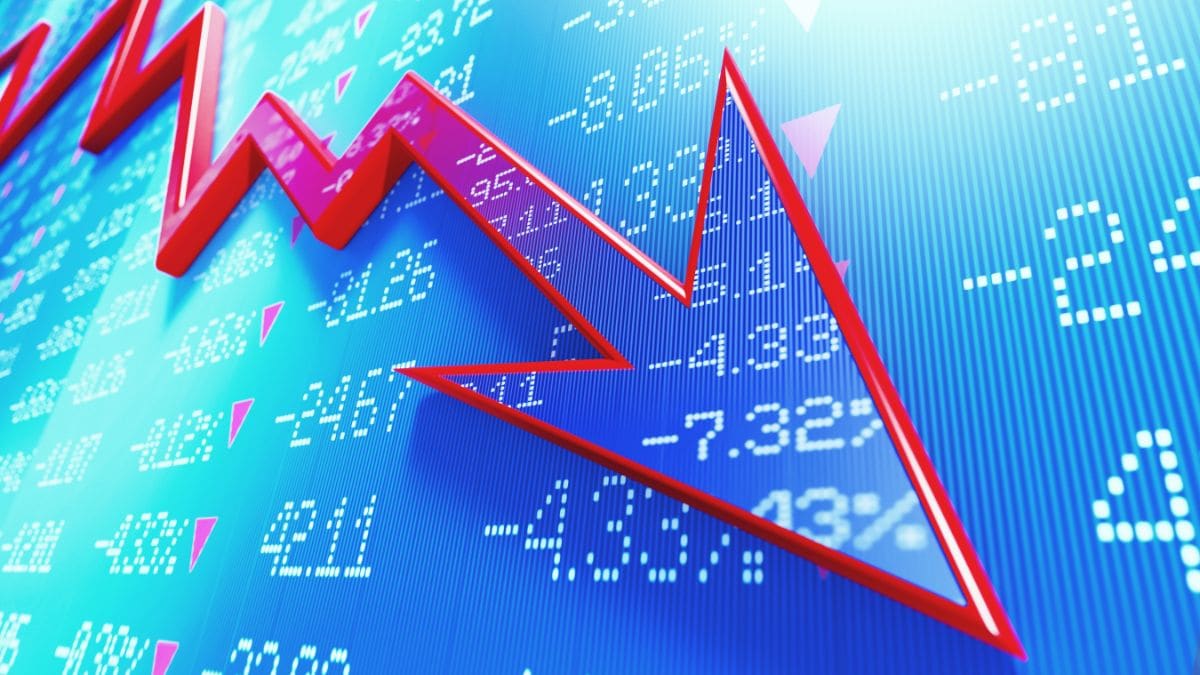The start of 2025 has been nothing short of catastrophic for investors, as mid-cap and small-cap indices plummeted over 20%. The benchmark NSE Nifty has recorded an unprecedented five-month streak of negative returns, marking the most severe market correction since the tumultuous days of the 2020 pandemic. This downturn has disproportionately impacted the broader market, leading to significant declines in many stocks from their 52-week highs.
In light of these conditions, investors are keen to capitalize on lower prices through buying on dips, but caution is essential. Not every stock that has dropped is a wise investment; the uncertainty surrounding their future performance can be daunting. This article explores five companies that may not be worth your risk, even with their stock prices down by 40-50% from their peaks.
1. Sterling & Wilson Renewable Energy
Sterling & Wilson Renewable Energy is a prominent player in the renewable energy sector, offering end-to-end EPC solutions across 28 countries, including regions like India and Europe. With a portfolio boasting 21.7 GWp of renewable energy projects, the company has faced a tumultuous financial landscape. Despite returning to profitability in FY25, its past inconsistent performance raises red flags.
- Recent Challenges:
- Ongoing promoter stake selling, with 7.25% divested in the past year.
- Leadership turbulence, as several senior executives have resigned.
- A staggering 66% drop from its 52-week high.
While the company has a robust order book worth Rs 101.7 billion, uncertainties surrounding future policies, such as those proposed by Trump on renewable energy, add to the investment risk.
2. Honasa Consumer
Established in 2016, Honasa Consumer is known for its flagship brand, Mamaearth, which emphasizes toxin-free beauty products. Despite making waves as India’s top digital-first beauty brand, its financial health has taken a hit.
- Performance Overview:
- Revenue growth stalled at just 5.8% in FY25.
- Profit plummeted from Rs 800 million to Rs 480 million.
With increasing competition in the beauty and personal care sector, and ongoing legal disputes with former distributors, the stock has dropped nearly 60% from its peak. Mamaearth’s plans for physical store expansion may also keep margins tight, further complicating its recovery prospects.
3. Whirlpool of India
Whirlpool of India, a subsidiary of the global appliance giant, remains a household name but has faced mounting challenges in recent years. The company generates 59% of its revenue from refrigerators and has seen significant declines in market share due to fierce competition.
- Financial Struggles:
- Revenue growth at a mere 5% CAGR over five years.
- Profits declining at an alarming 11.5% annually.
With plans for significant promoter stake dilution — from 75% to 20% by mid-2025 — the stock has seen a 61% drop in value over the past year. Although there are signs of improved demand, the looming stake sale continues to overshadow its prospects.
4. Star Health & Allied Insurance
As India’s premier standalone health insurance provider with a 13% market share, Star Health has been grappling with high claim payouts that have led to persistent underwriting losses.
- Key Challenges:
- Combined ratio climbed to 96.7% in FY24, indicating profitability issues.
- Despite raising premiums, the company reported an underwriting loss of Rs 490 million in Q3FY25.
The threat from composite licensing, which allows insurers to offer both life and non-life insurance, could further challenge Star Health’s dominance in the market. Its share price has decreased by 58% since its listing in December 2021.
5. Easy Trip Planners
Easy Trip Planners, recognized as India’s second-largest online travel agency, has also made forays into insurance and charter solutions. However, recent financial performance raises concerns.
- Recent Developments:
- Promoter selling has resulted in a 14% stake reduction over two quarters.
- Revenue dipped from Rs 1,608 million to Rs 1,506 million in the latest quarter.
Despite efforts to expand internationally and innovate within the travel sector, the stock has plummeted 76% from its previous peak. This decline is compounded by unrelated investments in electric vehicle manufacturing, which may distract from its core business.
Conclusion
While the allure of buying on dips can be enticing for investors, it is crucial to exercise caution. Not all stocks are primed for recovery, especially those with weak fundamentals or poor financial health. Investors should prioritize companies with solid earnings growth potential and sound governance practices when considering their next move in this challenging market climate.
Remember, informed and cautious investing is the key to navigating these uncertain times. Happy investing!










